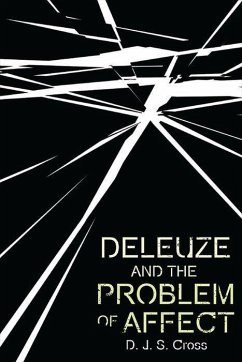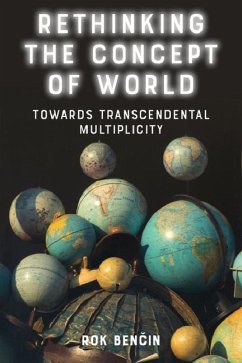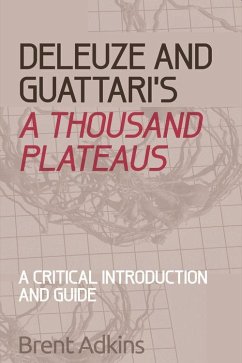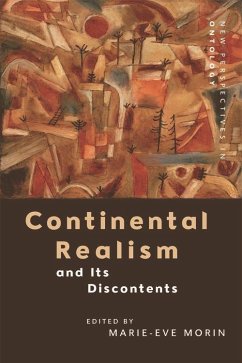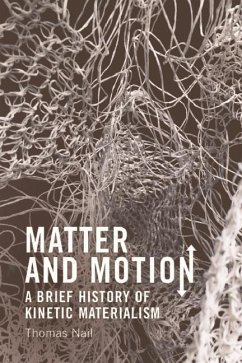Nicht lieferbar

Assemblage Theory
'Assemblage Theory, the culmination of 25 years' work, presents for the first time in one text a unified realist ontology spanning sub-atomic physics, chemistry, biology and social history. Simultaneously DeLanda has reoriented European philosophy, and given a remarkably lucid interpretation of Deleuze and Guattari. An extraordinary achievement.' Alistair Welchman, University of Texas at San Antonio 'Manuel DeLanda accomplishes what few thinkers ever manage to achieve: he renders the world interesting and thoroughly transforms our perception of what it is and how it came to be. This new book i...
'Assemblage Theory, the culmination of 25 years' work, presents for the first time in one text a unified realist ontology spanning sub-atomic physics, chemistry, biology and social history. Simultaneously DeLanda has reoriented European philosophy, and given a remarkably lucid interpretation of Deleuze and Guattari. An extraordinary achievement.' Alistair Welchman, University of Texas at San Antonio 'Manuel DeLanda accomplishes what few thinkers ever manage to achieve: he renders the world interesting and thoroughly transforms our perception of what it is and how it came to be. This new book is destined to generate much debate and discussion, reconfiguring the way we pose social and political questions and the coordinates of legitimate ontological thinking. After reading this work, the world never quite looks the same and things that seemed to have only marginal importance take on an entirely new significance.' Levi R. Bryant, Collin College Examines the concept of an assemblage of heterogeneous components Gilles Deleuze considered his concept of 'assemblage' to be one of his most important contributions to philosophy. Yet he never developed it consistently and systematically, whether in his own books or those co-authored with Félix Guattari. In this book Manuel DeLanda provides the first detailed overview of the assemblage theory found in germ in Deleuze and Guattari's writings. Through a series of case studies DeLanda shows how the concept can be applied to economic, linguistic and military history as well as to metaphysics, science and mathematics. DeLanda then presents the real power of assemblage theory by advancing it beyond its original formulation - allowing for the integration of communities, institutional organisations, cities and urban regions, while challenging Marxist orthodoxy with a Leftist politics of assemblages. Manuel DeLanda is an internationally recognised philosopher. He is a Professor of Philosophy and Science in the Architecture Departments at Princeton University and University of Pennsylvania. Cover image: (c) Manuel DeLanda Cover design: [EUP logo] www.euppublishing.com PPC ISBN: 978-1-4744-1362-6 Cover ISBN: 978-1-4744-1363-3 Barcode







